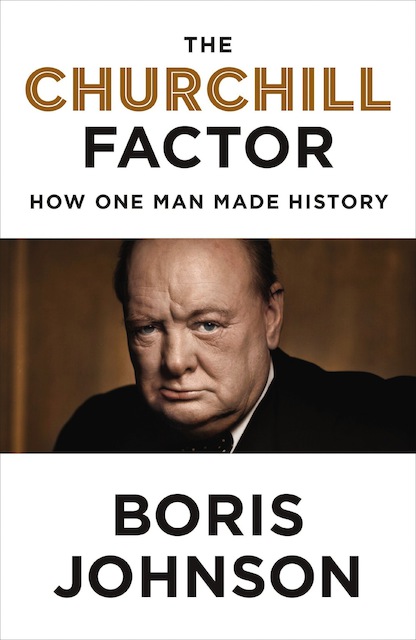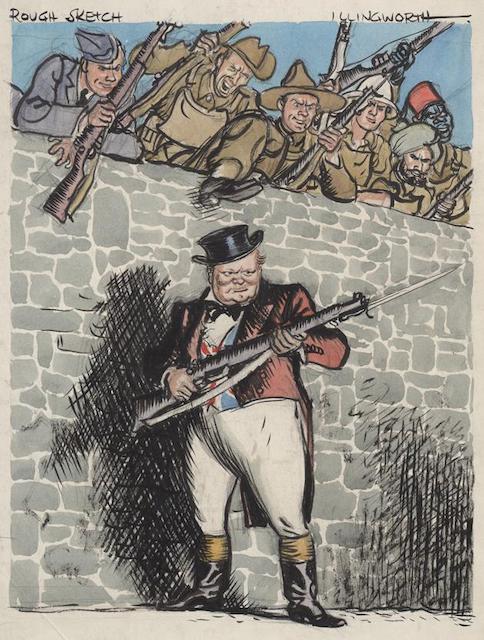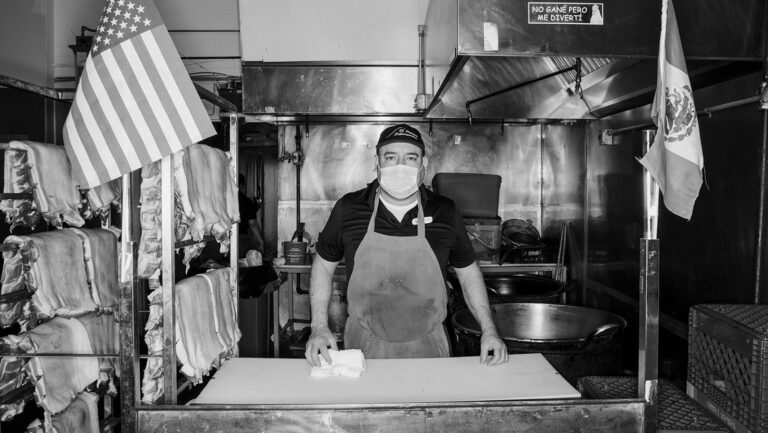Flaws And All: Boris Johnson’s The Churchill Factor Personalizes A Legend
Boris Johnson’s The Churchill Factor Personalizes A Legend


"Back to the wall" by Leslie Illingworth shows Churchill (as John Bull) guarding a wall also being defended by British Empire forces.
The National Archives UK








